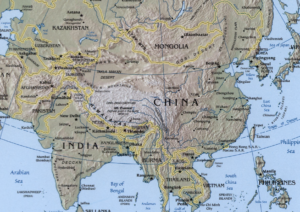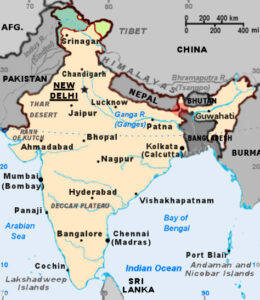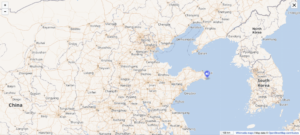- Guyana, located on the northeast coast of South America, is emerging as a major oil producer;
- Recent discoveries of rich oil basins along the Guyanese coast are boosting the country’s economic growth;
- Oil exploration in Guyana affects regional and global energy geopolitics, in addition to impacting neighboring countries and global oil markets.
The recent discoveries of oil basins off the coast of Guyana have sparked significant interest both within the oil industry and on the geopolitical scene.
With the discovery of fields such as Liza, Payara and Turbot, Guyana is on track to become a major oil producer in the region, potentially rivaling neighboring nations.
In addition, the perspective of natural gas production also places Guyana as a potential alternative supplier to Europe and, by choosing not to join OPEC, the country seeks to protect its national interests and the economic opportunities that arise from positioning itself as a new regional energy power.

The recent discoveries of oil basins off the coast of Guyana
Guyana is a country located on the northeast coast of South America, between Brazil and Venezuela. The region has attracted considerable attention and investment from the oil industry due to its exploratory potential. Recent oil discoveries have significant implications for the Guyanese economy and the global energy sector.
The discoveries were made in the Guiana Basin, a region rich in natural resources that extends along the country’s coastline as well as beyond its maritime borders, including areas that also belong to Suriname and Venezuela. Oil companies that have explored the region include ExxonMobil, Hess Corporation and CNOOC (China National Offshore Oil Corporation).
ExxonMobil led discoveries in the area with the Liza oil field, located in Guyana’s Exclusive Maritime Zone. The first discoveries at Liza were announced in 2015, and since then the company has continued to drill additional wells, finding substantial amounts of oil. It is estimated that reserves at Liza could exceed 1 billion barrels of oil.
In addition to Liza, other promising discoveries have been made in fields such as Payara, Snoek, Liza Deep and Turbot. These discoveries have raised expectations that Guyana could become an important oil producer in the region, possibly rivaling neighboring nations such as Brazil and Venezuela.
Furthermore, Georgetown, the Guyanese capital, also sees natural gas as a promising next frontier. With the oil discoveries, it is expected that the country will also have substantial offshore natural gas reserves, exploring options to develop this industry and take advantage of the potential of natural gas as an energy source.
Oil exports have already made Guyana the country with the highest GDP growth in the world
The development of the aforementioned oil fields off the coast of Guyana has transformed the country’s economy.
Revenue from the oil industry could boost economic growth, improve infrastructure, increase employment, and provide additional resources for investments in education and health.
It is estimated that Guyana could reach a daily oil production of up to 1 million barrels per day by 2030, becoming a major world oil producer, becoming a new energy power in the region.
As a result, the country’s economic growth has been impressive in recent years. In 2021, Georgetown registered a GDP growth of approximately 20%, which is remarkable and places Guyana as one of the countries with the highest economic growth in the world today.
However, there are also challenges to be faced, such as the need to ensure proper management of natural resources, mitigation of environmental impacts and building local capacity.
Even so, exploration contracts were not as beneficial to Guyana as they could have been.
Some experts have pointed out that Guyana’s oil exploration contracts may not have been as beneficial to the country as they could have been.
This view is based on issues related to the structure of contracts and the terms agreed upon between the Government of Guyana and oil companies such as ExxonMobil.
Some critics argue that the exploration contracts offered to the oil companies did not provide Georgetown with a fair share of the profits from the oil, then discovered, raising concerns about the tax structure, profit sharing and lack of transparency in these deals.
Furthermore, Guyana is a developing country with an emerging oil industry, which poses additional challenges in terms of institutional and regulatory capacity to deal with international oil companies. Under review, this may have impacted the Guyanese government’s ability to obtain the best terms in exploration contracts.
However, it is possible that, with the continued development of the oil industry and the accumulation of experience and knowledge, your government may reassess its exploration contracts in the future and seek more favorable terms.
Guyana has rejected OPEC membership as it prefers to focus on short-term production growth rather than controlling it
Guyana has received attention from major international players and organizations such as the international cartel of oil producers OPEC. While some discussions have been held about Georgetown joining the organization, the country’s vice president has stated that the country is not interested in joining at the moment.
Guyana is believed to have opted out of membership in order to focus on growing oil production in the short term rather than controlling it to benefit OPEC.
Instead, the country is committed to increasing its oil production quickly to take advantage of the economic opportunities it generates by the sector.
Therefore, the country is targeting a daily production of up to 1 million barrels of oil per day by 2030, which represents a significant growth compared to the current production of 400,000 barrels.
This approach of prioritizing production growth over seeking OPEC membership is in line with the strategy of maximizing the economic benefits of its oil reserves and accelerating the development of the national oil sector.
One of the reasons Georgetown seeks independence from the association is the threat that Venezuela poses to the country. The territorial dispute between Guyana and Venezuela regarding the Essequibo region, where major oil discoveries were made, generated geopolitical tensions and resulted in an alliance between Guyana and the United States.
However, it is possible that Guyana’s decisions and strategies in relation to OPEC may be subject to changes in the future, depending on the country’s economic and geopolitical needs.
The geopolitical importance of Guyana becoming a major oil producer outside the OPEC cartel
By distancing itself from OPEC, Guyana seeks to avoid political influence and protect its national interests. Its strategic position in South America and its vast oil reserves have significant geopolitical implications.
With its vast reserves and production potential, Guyana is becoming an important oil supplier in South America. This could impact neighboring countries such as Brazil, which has historically been an important oil producer in the region, but which could suffer from Georgetown’s competitiveness.
In addition to tensions with Venezuela, Georgetown’s non-association with OPEC is also strongly related to production and export limitations imposed by the cartel.
By remaining outside the organization, Guyana can produce and export as needed, putting more oil on the market, making it more competitive and, consequently, weakening OPEC and OPEC+ – which includes Russia – and collaborating to reduce international oil prices.
This can benefit international consumers – such as India, China, the United States, among others –, by lowering energy prices and collaborating with the reduction of inflation in these countries.
Furthermore, Guyana is also preparing to exploit its natural gas reserves, envisioning the next energy frontier. This production is particularly relevant for Europe, which seeks to diversify its gas sources and reduce its dependence on Russian gas, especially amid the instability in the region with the war in Ukraine.
With gas production, Guyana can become an alternative supplier to the European Union, contributing to the continent’s energy security and reducing its vulnerability to potential supply interruptions.
In short, Guyana’s geopolitical importance in becoming a major oil producer outside the OPEC cartel is remarkable. The decision to pursue oil and gas production growth independently of OPEC reflects a strategic approach to protecting national interests, controlling prices and playing a relevant role in regional and global energy geopolitics.
As Guyana continues to develop its reserves, its impact on the global economy and International Relations will certainly be noticed by the international community.










[…] such a source of wealth, oil-producing countries have very strong negotiating power in global geopolitics. Because they are in practice a […]
[…] between the two countries have fluctuated between moments of tension and periods of dialogue. The recent discovery of extensive oil reserves in the region has reignited hostilities, with Venezuela now asserting rights over these resources, […]